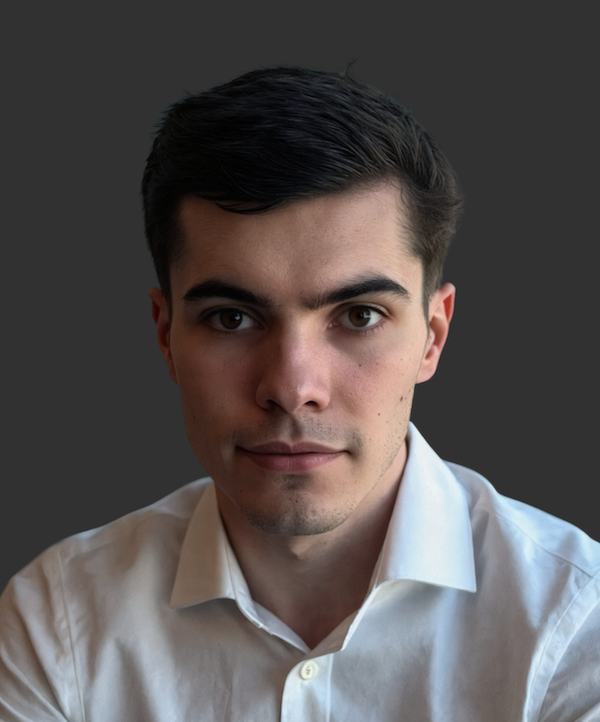5 Minutes with Sonder: Life in the Cayman Islands

“The Cayman Islands became my destination of choice as I believe it’s the only place in the world where you can start your day with a morning swim in one of the world’s top ten beaches and then spend your day working in a demanding tier one environment.”
As many of us struggle to maintain the right work-life balance with long commutes and even longer working hours, we sometimes need to take a step back to find that balance. For some, a change of scenery is all you need to see life in a new perspective. Making the move can be daunting for most of us as there are so many unknowns.To shed some light on the unknown, we sat down with one of our most recent success stories, James Murrie. With his insight and first-hand experience, James sheds some light on how life offshore brings back the balance we all tend to lose sight of in the hustle and bustle of the city.See his full interview below along with the steps to make the move yourself by contacting Sonder Consultants today!
Exclusive interview with an associate at Top Tier Firm in the Cayman Islands
What attracted you to the Caymans Islands?
J.M : To be perfectly honest, the Cayman Islands weren’t on my radar at all until Sonder Consultants suggested I consider it. For me, the Cayman Islands presented a more fulsome offering than other key legal destinations including, New York, London, Hong Kong and the Middle East (which were initially on my list). Ultimately, the Cayman Islands became my destination of choice as I believe it’s the only place in the world where you can start your day with a morning swim in one of the world’s top ten beaches and then spend your day working in a demanding tier one environment
What was the job process like?
J.M : The recruitment process adopted by offshore firms in the Cayman Islands is sophisticated and thorough. The quality and calibre of the onshore lawyers employed in the Cayman Islands is high as the offshore market is extremely competitive and the major offshore firms are constantly looking to gain a competitive edge over their competitors and retain their goodwill with the major onshore referral networks.
What do you like most about working and living in the Cayman Islands?
J.M : Working and living in the Cayman Islands speaks to me personally as my work-life balance is exactly that…balanced. Living 5 minutes from the office, the shops, the schools, our friends and, of course, Seven Mile Beach, allows me to maximise my family and social life in a way that I couldn’t have achieved onshore. Cayman caters to people at any life stage from those that wish to spend the weekend working their way through the cocktail list at a 5-star beachside resort, to the sport and fitness inclined that have unlimited water based activities literally on their doorstep, to those with children who can take advantage of quality international schools and an Island-wide family friendly culture.
What are the key differences re: working at a top tier in Australia versus a top tier firm in the Cayman Islands?
J.M : Firstly, the volume of matters and the pace at which they progress is the key difference and the most difficult to become accustomed to. As a transactional lawyer onshore, I would work on 3 to 5 transactions at any given time. As a funds lawyer offshore, I consistently have between 30 to 50 transactions at any given time. Your scope of involvement in a given matter is limited in that you are advising in respect of the Cayman aspects of broader global transactions and advising only on matters of Cayman Islands law.Secondly, the level of responsibility, ownership and client interaction is greatly increased in the Cayman Islands. There is an expectation that you manage each of your transactions from client engagement to closing. Partner input and intervention only happens when required. The support of Partners and senior practitioners is always available, but a shift in mind-set is certainly required when engaging in each matter.Lastly, you typically receive instructions from major US law firms, meaning you are dealing on a day-to-day basis with a sophisticated and demanding client, which means the pressure to deliver a polished product in a condensed time frame is a daily reality.
What’s the quality of work like? What type of clients are you working with? Is there much travel involved in the job?
J.M : The Cayman Islands is the preferred jurisdiction for all of the top hedge fund and private equity fund managers globally looking to take advantage of tax neutrality on international investments as a result of the developed, sophisticated and flexible investment framework established by the Cayman Islands government (which is constantly developing in step with best industry practice). Accordingly, a vast majority of the clients we work with are sophisticated fund managers that require and expect first class advice and service, often in a condensed time frame. As previously noted, we are often dealing directly with onshore counsel, which reflect the high calibre of the fund managers. There are few travel requirements for those starting out with limited funds knowledge (e.g. lawyers with a transactional or regulatory background), which increases with seniority. Senior lawyers are typically in the United States, the UK or South America for 4 to 6 weeks of the year. You can expect to have your feet under the desk for at least the first 12 months on the job.
What’s been the biggest challenge from a work perspective?
J.M : The combination of having to learn an entirely new practice area (to a transactional lawyer, funds lawyers speak an entirely different language), together with the volume of matters and speed at which they move has been challenging. It has taken a full 6 months to adapt to this aspect of the job.
Are your hours significantly different to when you worked in Melbourne?
J.M : The financial metrics are comparatively high compared to Melbourne but they are genuinely more achievable. The workflow is much more consistent than you would see in a transactional role and meeting your 7+ hours per day becomes second nature. There are still late nights and occasional weekend work required during peak times (particularly in your first few months while you get yourself up to speed) but this seems much less of a chore when you have a five-minute commute to the office.
What does a regular workday look like for you now?
J.M : On any given day I’ll be managing between 5 to 10 different matters that range from advising on and forming private equity and hedge fund structures, reviewing fund governance and offering documents from a Cayman Islands’ perspective, drafting and issuing legal opinions in respect of fund closings and working on transaction documents for a downstream sale, merger or IPO (noting the Cayman firms are seeing more of the downstream transactional work being undertaken here so the thirst for transactional trained lawyers has increased).
What does a regular weekend look like for you?
J.M : After-work drinks on Friday, typically at a laid back sandy bar on the beach. An early morning coffee on Saturday, following by a swim and snorkel on Seven Mile Beach with my daughter (while my wife takes a stand up paddle boarding yoga class), activities for my daughter (ballet and gym at the moment), then back to the beach for more swimming and a few drinks with friends. Sunday is my favourite day of the week as it typically involves meeting a group of fellow expats for a long bottomless champagne brunch at one of the many stunning beachside venues followed by yet another beach session. The weekends here are a key difference – living in a holiday destination allows you to genuinely wind down on Saturday and Sunday.
What skills & training do you think have served you best at your current firm? (drafting, dd etc.)
J.M : Transactional project management skills. The funds practice can be learned but it is clear that the partners appreciate new lawyers that can drag a transactional deal across the line to closing.
Have you done much travel in the region?
J.M : I have some trips booked to Louisville for the Kentucky Derby, Aspen for a wedding, Las Vegas for a bucks’ party, New York for my 30th birthday and Australia (of course) to visit family and friends. The travel opportunities are endless with dozens of direct flights to key destinations. I’m looking most forward to hopping across to Jamaica when Australia plays some cricket in the West Indies.
What’s the best piece of advice you can offer to Australian & Kiwi lawyers contemplating a move to the Cayman Islands?
J.M : Start the discussion with your recruiter or your contacts there now. Due to the immigration process, from the first interview to the start date is at least 4 months and sometimes longer.
Making a move offshore does require you to obtain a visa and in some instances you will need to re-qualify. To work in the Cayman Islands all prospective candidates must be common law qualified and most firms require candidates to be qualified for at least 3 years. To obtain a visa you will also need to show that you have actually been offered a role by an offshore firm i.e signed a contract. All of our clients are extremely helpful throughout this process and will help you every step of the way.Does the above sound appealing? If you have ever thought about a move offshore and you specialise in either funds, corporate, banking and finance or litigation now really is a great time to make the move.
For more information regarding these roles and to discuss other potential opportunities reach out to Matthew Hart on: matthew.hart@sonderconsultants.com






